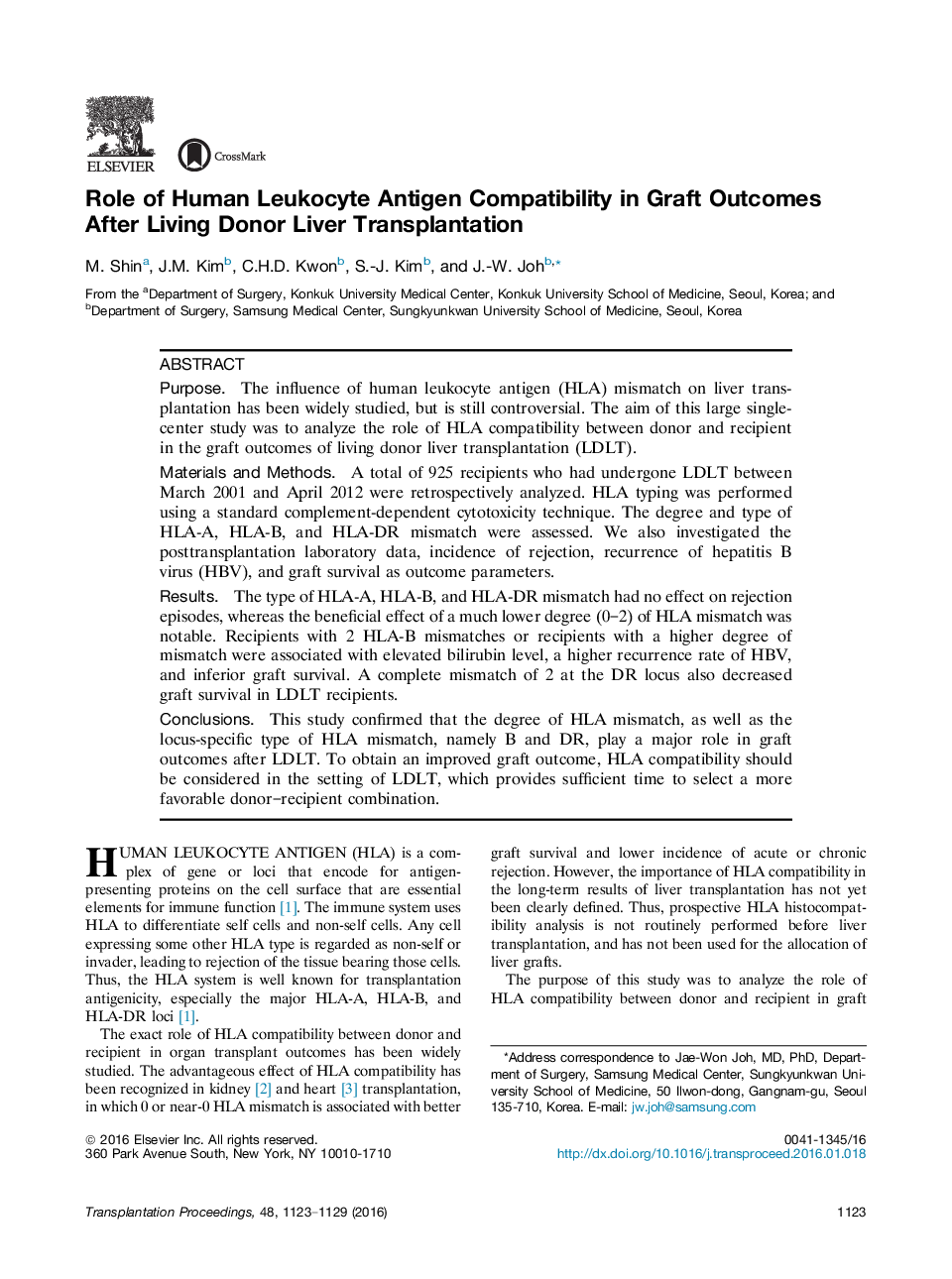| Article ID | Journal | Published Year | Pages | File Type |
|---|---|---|---|---|
| 4255974 | Transplantation Proceedings | 2016 | 7 Pages |
•HLA mismatch had no significant effect on rejection episodes.•A higher degree of HLA mismatch or 2 mismatches at the B locus had a negative impact.•The presence of 2 mismatches at the DR locus was associated with lower graft survival.•The degree and locus-specific type of HLA mismatch, mainly at B and DR loci, played a role.
PurposeThe influence of human leukocyte antigen (HLA) mismatch on liver transplantation has been widely studied, but is still controversial. The aim of this large single-center study was to analyze the role of HLA compatibility between donor and recipient in the graft outcomes of living donor liver transplantation (LDLT).Materials and MethodsA total of 925 recipients who had undergone LDLT between March 2001 and April 2012 were retrospectively analyzed. HLA typing was performed using a standard complement-dependent cytotoxicity technique. The degree and type of HLA-A, HLA-B, and HLA-DR mismatch were assessed. We also investigated the posttransplantation laboratory data, incidence of rejection, recurrence of hepatitis B virus (HBV), and graft survival as outcome parameters.ResultsThe type of HLA-A, HLA-B, and HLA-DR mismatch had no effect on rejection episodes, whereas the beneficial effect of a much lower degree (0–2) of HLA mismatch was notable. Recipients with 2 HLA-B mismatches or recipients with a higher degree of mismatch were associated with elevated bilirubin level, a higher recurrence rate of HBV, and inferior graft survival. A complete mismatch of 2 at the DR locus also decreased graft survival in LDLT recipients.ConclusionsThis study confirmed that the degree of HLA mismatch, as well as the locus-specific type of HLA mismatch, namely B and DR, play a major role in graft outcomes after LDLT. To obtain an improved graft outcome, HLA compatibility should be considered in the setting of LDLT, which provides sufficient time to select a more favorable donor–recipient combination.
